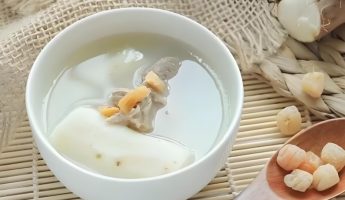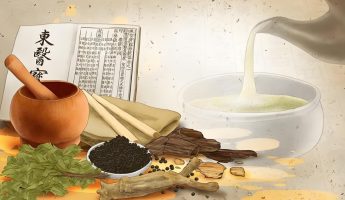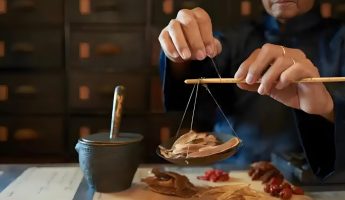In the fast-paced modern life, colds have become a frequent occurrence in many people’s lives, especially during seasonal changes, where people often experience symptoms such as prolonged coughing due to colds. Although Western medicine provides various drug therapies, many people hope to use more natural therapies to solve problems. In this regard, traditional Chinese medicine and Taoism have provided us with some effective remedies that can not only alleviate symptoms but also address the root cause.
1、 Causes of Cold and Long Cough
A cold is usually an upper respiratory tract infection caused by a virus, with typical symptoms including runny nose, cough, sore throat, etc. Although most colds will heal on their own within a week, some people, such as those with weak constitution, the elderly, or chronic diseases, may continue to experience symptoms such as coughing after catching a cold. Long term coughing not only affects the quality of life, but may also lead to other health problems, which must be taken seriously.
From the perspective of traditional Chinese medicine, colds are often caused by the invasion of “external pathogens”. External pathogens include wind cold, wind heat, heat dampness, etc., mainly manifested as symptoms such as fever and cough. And persistent coughing is often related to various factors such as personal constitution, lifestyle habits, and climate change. Traditional Chinese medicine believes that imbalances in yin and yang, insufficient qi and blood, and accumulation of phlegm and dampness in the body can all lead to worsening cough.
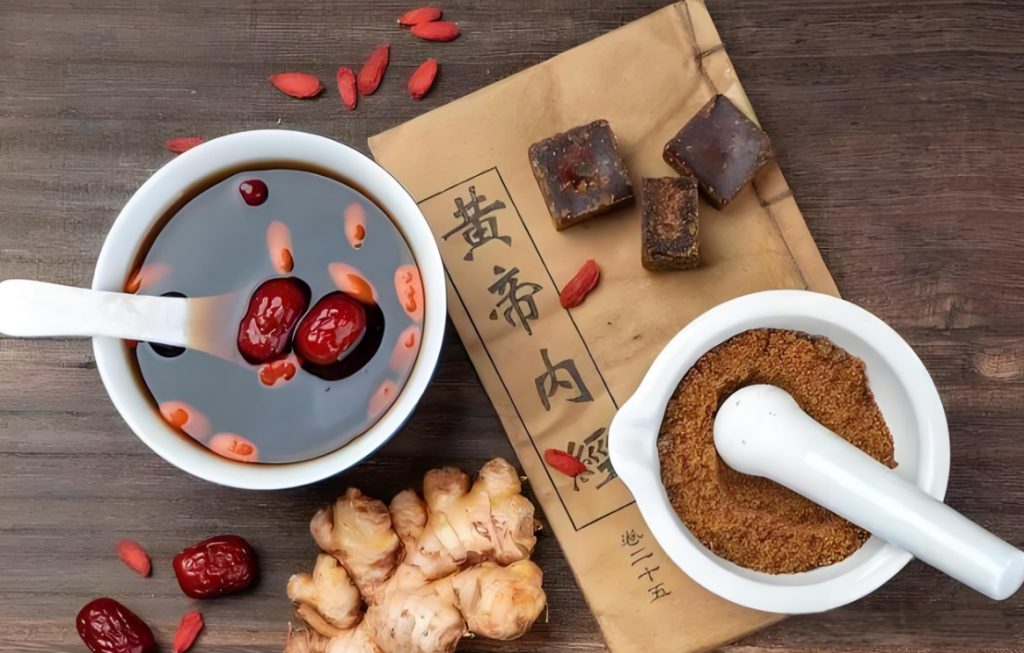
2、 Principles of Taoist Medicine Treatment
The treatment principle of Daoist medicine emphasizes “harmonizing yin and yang, and unblocking meridians”. By regulating the function of internal organs and enhancing the body’s immunity, we can resist the invasion of external pathogens. The methods commonly used by Taoist doctors include acupuncture and moxibustion, massage, drug formula and diet.
Acupuncture and moxibustion therapy
Acupuncture and moxibustion is one of the commonly used methods of Taoist medicine in treating respiratory diseases. By stimulating specific acupoints, the body’s immunity can be enhanced, inflammation can be reduced, and cough symptoms can be improved. For example, commonly used acupoints include:
Fei Yu: located 1.5 inches below the spinous process of the second thoracic vertebra, it has the effect of promoting lung function and relieving cough.
Qi Sea: Located on the anterior midline of the abdomen, 1.5 inches below the navel, it can enhance spleen and stomach function, regulate qi and blood.
Hegu: located between the fingertips on the back of the hand, it can enhance overall immunity and alleviate upper respiratory tract infections.
Tuina massage
Tuina massage can help alleviate the discomfort caused by coughing, and has a significant effect on promoting blood circulation and enhancing organ function. Simple self massage can be performed at home, such as gently massaging the chest, back, and hands and feet, which can help relieve tense muscles, improve local blood circulation, and enhance respiratory function.
Chinese herbal medicine conditioning
Taoist doctors use various methods of traditional Chinese medicine to regulate colds and persistent coughs. Below are several common traditional Chinese medicines and their formulas:
Cough Relieving and Phlegm Resolving Soup: This soup is generally composed of Sichuan Fritillaria, Platycodon grandiflorum, licorice, Atractylodes macrocephala, etc. It has the effects of moistening the lungs, stopping cough, and resolving phlegm.
Ginger brown sugar tea: suitable for mild cough caused by wind cold and cold. Ginger has the effect of warming and dispersing cold, while brown sugar can enhance blood circulation.
When using traditional Chinese medicine, it is necessary to choose according to personal constitution and symptoms, and it is recommended to do so under the guidance of a professional Chinese medicine practitioner.
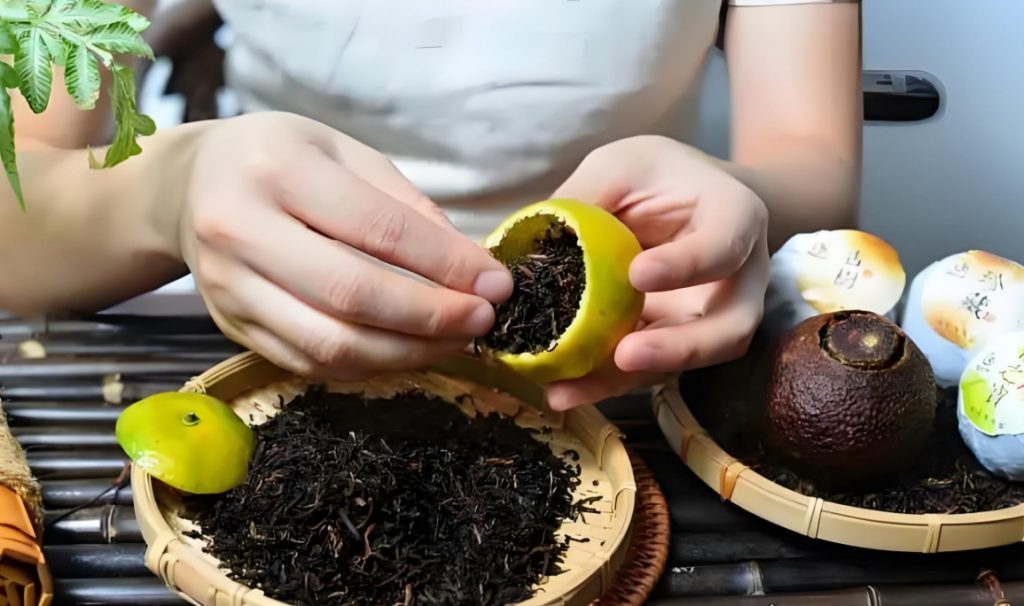
3、 Suggestions for dietary maintenance
Good dietary habits are crucial for promoting the recovery of colds. During a cold, it is advisable to consume more foods that can enhance the body’s immune system, while also avoiding cold and raw foods to prevent worsening of the condition.
Increase nutrient intake
Moderate intake of fruits rich in vitamin C, especially citrus fruits and fruits such as kiwi, can enhance the body’s resistance. Eating more protein rich foods such as chicken, fish, eggs, etc. can help repair damaged tissues and enhance immune function. In addition, green leafy vegetables can enhance the body’s antioxidant capacity and help detoxify the body.
Recommended drinks
Warm water: helps maintain body hydration, promotes metabolism, and relieves coughing.
Honey Lemon Water: Honey has the effect of moistening the throat and relieving cough, while lemon is rich in vitamin C, which can enhance immunity.
Chicken Soup: Traditional chicken soup is rich in nutrients that can help restore physical strength and warm the body and mind.
Lifestyle adjustments
Maintaining good lifestyle habits cannot be ignored for resisting colds and improving physical condition.
Pay attention to the following points:
Ensure adequate sleep: Good sleep can regulate the body’s immune system and enhance resistance.
Moderate exercise: Daily moderate exercise can help enhance physical fitness and improve immunity.
Avoid stress and anxiety: Long term stress and anxiety can weaken the immune system. It is important to learn to relax and find stress relieving methods that are suitable for oneself, such as yoga, meditation, etc.
When using traditional Chinese medicine to treat colds and persistent coughs, special attention should be paid to the following points.
Identifying the cause: When choosing a treatment plan, it is important to understand the nature of your cough (such as wind cold, wind heat, etc.), otherwise it may lead to poor treatment results.
Balanced diet: Maintain a balanced diet, take appropriate supplements, but also avoid oily and cold foods.
Seek medical attention promptly: If coughing persists for more than two weeks or is accompanied by severe symptoms such as high fever and coughing up blood, seek medical attention promptly to rule out the possibility of other illnesses.
In general, traditional Chinese medicine practitioners effectively treat symptoms of colds and persistent coughs by regulating the balance of yin and yang in the body, clearing meridians, using medication, and adjusting lifestyle habits. I hope everyone can flexibly apply the good prescriptions of Taoist doctors according to their own situations, recover their health as soon as possible, and make their lives better.

